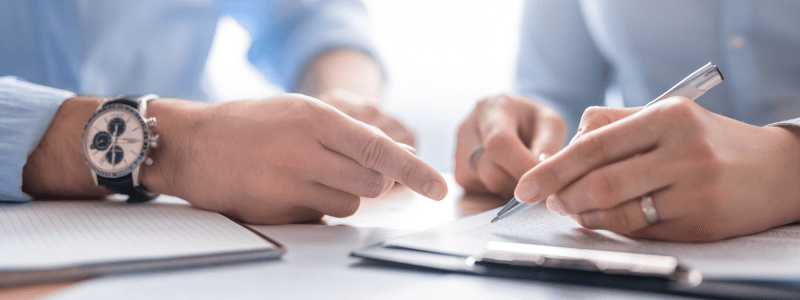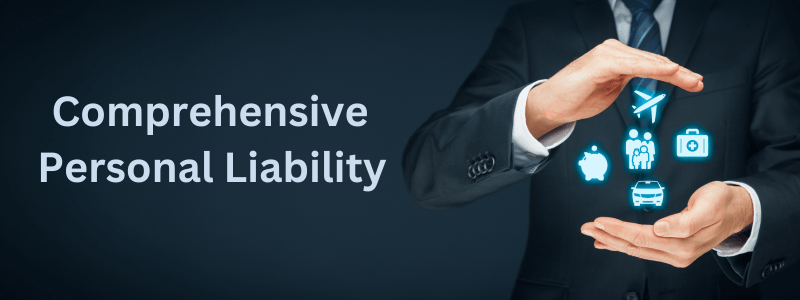Life is full of unexpected twists and turns, and sometimes those surprises come with hefty financial consequences. Comprehensive personal liability is one such risk that can threaten your financial stability if not properly managed. This article delves into the world of personal liability, explaining why it’s crucial to protect your wealth with appropriate insurance coverage. We’ll guide you through the types of personal liability insurance available, how to choose the right coverage, and the steps to take if you ever face a claim.
Understanding Personal Liability
Definition of Personal Liability
Personal liability refers to the legal responsibility an individual has for any harm or damage they may cause to another person or their property. This could stem from a variety of situations, such as an accident in your home, an injury caused by your pet, or even a defamation lawsuit from something you said or wrote.
Common Scenarios Leading to Personal Liability
Accidents happen, and when they do, you could find yourself facing significant financial obligations. Common scenarios include:
- A guest slipping and falling in your home.
- Your child accidentally breaks a neighbor’s window.
- Your dog biting someone at the park.
- Being sued for defamation due to something you posted online.
Types of Personal Liability Insurance
General Liability Insurance
General liability insurance provides coverage for most personal liability situations, protecting you from claims of bodily injury, property damage, and personal injury.
Professional Liability Insurance
Professional liability insurance, also known as errors and omissions insurance, is crucial for professionals who provide services or advice. It covers claims related to professional mistakes or negligence.
Umbrella Insurance
Umbrella insurance offers additional coverage beyond the limits of your primary liability policies, such as home or auto insurance. It’s designed to protect you from major claims and lawsuits.
Why Personal Liability Coverage is Essential
Protecting Your Assets
Without adequate liability coverage, a significant claim could wipe out your savings, investments, and other assets. Liability insurance acts as a financial shield, protecting your wealth from unforeseen events.
Legal Defense Costs
Legal battles can be expensive. Personal liability insurance often covers legal defense costs, ensuring you have the resources to defend yourself in court.
Peace of Mind
Knowing you have comprehensive liability coverage provides peace of mind, allowing you to go about your daily life without the constant worry of financial ruin from an unexpected accident.
How Personal Liability Insurance Works
Policy Coverage Details
Personal liability insurance policies typically cover legal fees, medical bills for the injured party, and any settlements or judgments against you. Coverage limits vary, so it’s important to understand the specifics of your policy.
Claim Process
Filing a claim involves notifying your insurance provider of the incident, providing necessary documentation, and cooperating with their investigation. The insurer will then assess the claim and determine coverage.
Exclusions and Limitations
All policies have exclusions and limitations. Common exclusions include intentional harm, criminal acts, and liabilities arising from business activities. Understanding these limitations helps avoid surprises when filing a claim.
Determining the Right Coverage Amount
Evaluating Your Net Worth
Your coverage should be sufficient to protect your net worth. This includes all your assets, such as your home, investments, and personal property.
Assessing Potential Risks
Consider your lifestyle and potential risks. If you frequently entertain guests, have a pool, or own pets, you may need higher coverage due to increased liability exposure.
Consulting with an Insurance Professional
An insurance professional can provide personalized advice based on your specific needs, helping you determine the appropriate coverage amount.
Cost of Personal Liability Insurance
Factors Influencing Premiums
Several factors affect the cost of personal liability insurance, including your location, coverage amount, and risk factors such as owning a pool or certain breeds of dogs.
Average Costs
While costs vary, personal liability insurance is generally affordable. Basic coverage can cost as little as $100-$300 per year, while umbrella policies range from $150-$500 annually.
Ways to Reduce Premiums
Increasing your deductible, bundling policies, and maintaining a claims-free history can help lower your premiums. Shopping around and comparing quotes from different insurers also ensures you get the best rate.
Choosing the Right Insurance Provider
Researching Providers
Start by researching reputable insurance providers. Look for companies with strong financial ratings and a history of good customer service.
Comparing Policies
Compare the coverage options, limits, and premiums of different policies. Ensure the policy you choose aligns with your needs and budget.
Reading Reviews and Testimonials
Customer reviews and testimonials provide insights into an insurer’s reliability and service quality. Look for feedback on claims handling and customer support.
Common Myths About Personal Liability Insurance
Misconceptions and Clarifications
Many people believe that personal liability insurance is unnecessary or that their existing policies offer sufficient coverage. In reality, additional coverage is often needed to fully protect against significant claims.
Why These Myths Persist
Misunderstandings about liability insurance often stem from a lack of awareness or misconceptions about the risk of being sued. Education and clear communication from insurers can help dispel these myths.
Real-Life Examples of Personal Liability Claims
Case Studies
Consider the case of a homeowner whose guest slipped on an icy walkway, resulting in a $200,000 settlement. Or the professional consultant sued for advice that led to a client’s financial loss, costing $500,000 in damages and legal fees.
Lessons Learned
These examples highlight the importance of adequate liability coverage. They demonstrate how unexpected incidents can lead to substantial financial consequences, underscoring the need for proper insurance.
Additional Protections and Considerations
Bundling Policies
Bundling personal liability with other policies, like home and auto insurance, can provide discounts and simplify management.
Increasing Existing Coverage
Review your current policies to ensure they offer sufficient liability coverage. You might need to increase limits or add an umbrella policy for extra protection.
Legal Safeguards
Beyond insurance, consider legal measures to protect your assets, such as setting up trusts or incorporating your business.
Steps to Take if Faced with a Liability Claim
Immediate Actions
If you’re faced with a liability claim, take immediate steps to mitigate the situation. Provide assistance to the injured party and gather information about the incident.
Contacting Your Insurance Provider
Notify your insurance provider as soon as possible. Provide them with all relevant details and cooperate fully with their investigation.
Documentation and Evidence
Keep detailed records of the incident, including photos, witness statements, and any correspondence related to the claim. This documentation will be crucial in supporting your case.
Legal Implications of Personal Liability
Understanding Legal Obligations
Being aware of your legal obligations is essential. Failing to comply with court orders or settlements can result in further legal action and financial penalties.
Potential Legal Consequences
Ignoring a liability claim or failing to have adequate coverage can lead to severe legal and financial consequences, including wage garnishment, asset seizure, and bankruptcy.
The Future of Personal Liability Insurance

Emerging Trends
The landscape of personal liability insurance is evolving. New risks, such as cyber liability, are becoming more prominent, and insurers are adapting to these changes.
Technological Advancements
Technology is playing a significant role in the insurance industry. From digital policy management to AI-driven claims processing, advancements are making insurance more accessible and efficient.
Conclusion
Personal liability is a significant risk that can threaten your financial stability. By understanding the importance of comprehensive personal liability insurance, choosing the right coverage, and taking proactive steps to protect your wealth, you can safeguard your assets and enjoy peace of mind. Remember, it’s not just about having insurance; it’s about having the right insurance to meet your needs.
FAQs
1. What is the difference between personal liability and general liability?
Personal liability generally refers to coverage for individuals, protecting against claims of bodily injury or property damage caused by personal activities. General liability is broader and often refers to business-related coverage.
2. How much personal liability insurance do I need?
The amount depends on your assets and potential risks. Consulting with an insurance professional can help you determine the appropriate coverage.
3. Can personal liability insurance be included in homeowner’s insurance?
Yes, many homeowner’s insurance policies include a personal liability component, but the coverage limits may be insufficient for high-net-worth individuals.
4. What does personal liability insurance not cover?
Exclusions typically include intentional harm, criminal acts, and liabilities arising from business activities. Always read your policy details to understand specific exclusions.
5. How do I file a personal liability insurance claim?
Contact your insurance provider, provide detailed information about the incident, and submit any required documentation. Cooperate with the investigation process to ensure a smooth claim-handling experience.
For more insights on protecting your financial assets, be sure to read our detailed guide on Insurable Interest: Your Key to Financial Protection.

